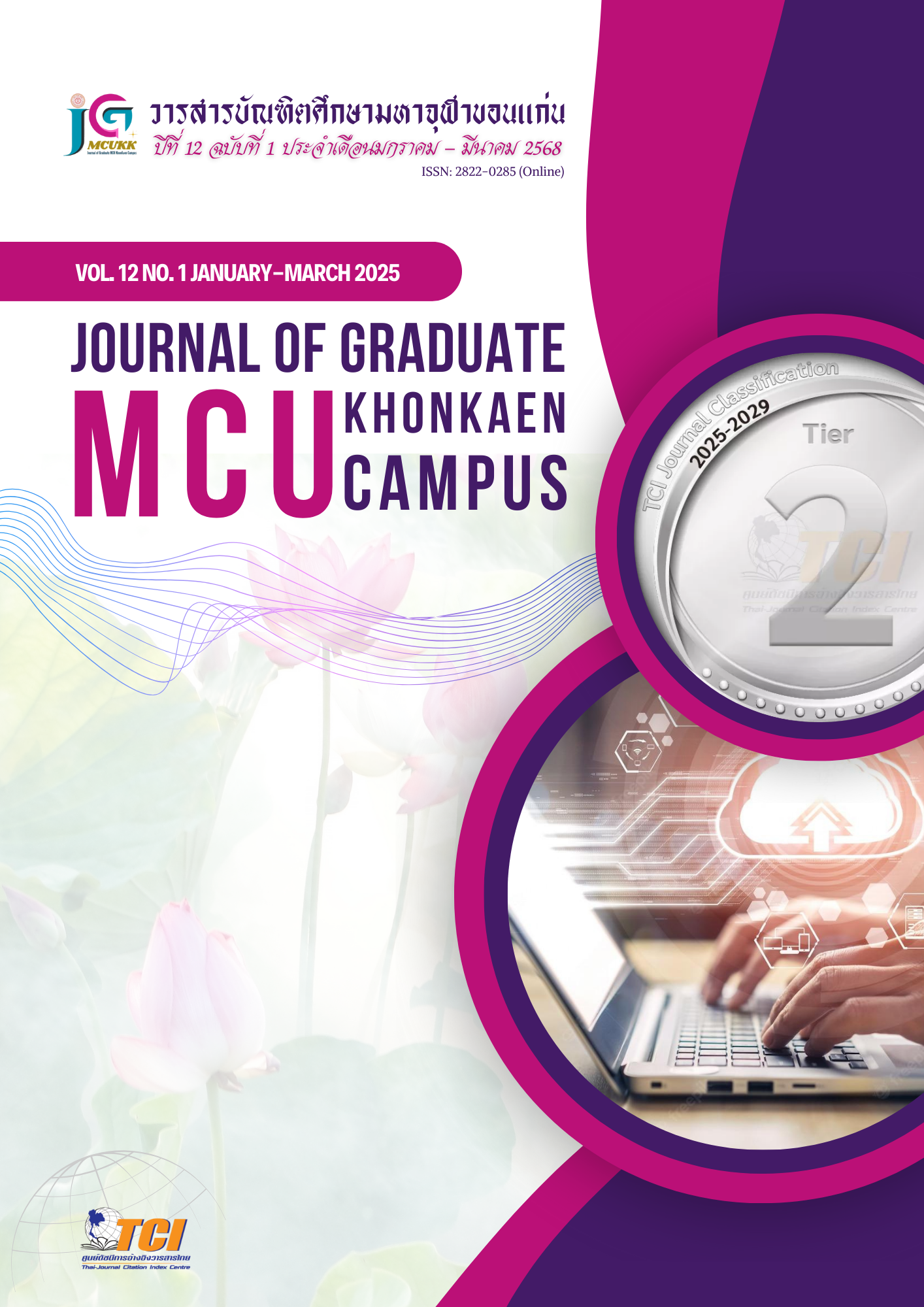Design and Development of Educational Board Games Based on the Flow Theory to Enhance Mathematical Literacy on Addition and Subtraction for Grade 2 Students
Main Article Content
Abstract
This research aimed to 1) analyze and explore the perspectives of stakeholders, 2) design and develop a prototype educational board game, and 3) evaluate and reflect on the use of the prototype educational board game based on the Flow theory to
enhance mathematical literacy in addition and subtraction for Grade 2 students.
The target group included school directors, teachers, parents, Grade 2 students, and board game designers. Research instruments comprised semi-structured interviews, Journeymap, POV Statement , design principles documentation, a mathematical literacy test on addition and subtraction, and an appropriateness assessment form. Qualitative data were analyzed using content analysis, while quantitative data were analyzed using the Wilcoxon Signed-Rank Test and Friedman Test.
The research findings revealed that:
1) school directors, teachers, students, and parents desired a board game that enhances confidence and enjoyment, aligns with students’ abilities, reduces anxiety, and increases engagement
2) the design principles included goals, rationale, intervention design focusing on content and process aspects, and educational board game components such as input factors and implementation processes;
3) the effectiveness assessment showed a statistically significant difference at the .05 level between pre-test and post-test scores.
Article Details

This work is licensed under a Creative Commons Attribution-NonCommercial-NoDerivatives 4.0 International License.
References
ฐิติพล ขำประถม. (14 เมษายน 2558). บอร์ดเกม ธุรกิจแนวใหม่ที่กำลังเติบโต. คมชัดลึก. http://www.komchadluek.net/news/kom-kid/204681
สรวีย์ กรกชงาม และ ผุสดี กลิ่นเกสร. (2566). การพัฒนาบอร์ดเกมคณิตศาสตร์เพื่อส่งเสริมทักษะทางคณิตศาสตร์ของนักเรียนชั้นประถมศึกษาตอนต้น. Journal of Modern Learning Development, 8(1), 1-15.
สถาบันส่งเสริมการสอนวิทยาศาสตร์และเทคโนโลยี (สสวท.). (2563). กรอบการประเมินด้านคณิตศาสตร์. https://pisathailand.ipst.ac.th/about-pisa/mathematical_literacy_framework/
สุวิมล ว่องวาณิช. (2563). หนังสือการวิจัยการออกแบบทางการศึกษา. สำนักพิมพ์จุฬาลงกรณ์มหาวิทยาลัย.
สำนักงานเขตพื้นที่การศึกษาประถมศึกษากาฬสินธุ์ เขต 2. (25 มีนาคม 2567). ผลสอบคุณภาพผู้เรียน (NT). https://www.kalasin2.go.th/
อภิสิทธิ์ไล่ศัตรูไกล. (2557). คู่มือการออกแบบบริการ SERVICE DESIGN WORKBOOK. ศูนย์สร้างสรรค์งานออกแบบ (TCDC).
Csikszentmihalyi, M. (1990). Flow: The psychology of optimal experience. Harper & Row.
Dweck, C. S. (2006). Mindset: The new psychology of success. Random House.
Edmonds, W. A., & Kennedy, T. D. (2017). An applied guide to research designs: Quantitative, qualitative, and mixed methods.
Epstein, J. L. (2001). School, family, and community partnerships: Preparing educators and improving schools. Westview Press.
Hattie, J. (2009). Visible learning: A synthesis of over 800 meta-analyses relating to achievement. Routledge.
McKenney, S., & Reeves, T. C. (2012). Conducting educational design research. Routledge.
OECD. (2019). PISA 2018 results (Volume I): What students know and can do. OECD Publishing. https://doi.org/10.1787/5f07c754-en
Piaget, J. (1977). The Development of Thought: Equilibration of Cognitive Structures. Oxford: Basil Blackwel
Platz, L., & Jüttler, M. (2022). Game-based learning as a gateway for promoting financial literacy–how games in economics influence students’ financial interest. Citizenship, Social and Economics Education, 21(3), 185-208.
Ramli, S. B., Omar, F. B., Dolah, J. B., Yasin, S. N. A. B. S., & Jusof, M. J. B. (2023). 2U2i and WBL-based programs: Student-centered learning efficacy in Malaysian higher education. Docens Series in Education, 4, 62–79.
Rizki, L. M., & Priatna, N. (2019). Mathematical literacy as the 21st century skill. In Journal of Physics: Conference Series 1157(4), 042088.
Rose, D. H., & Meyer, A. (2002). Teaching every student in the digital age: Universal design for learning. Association for Supervision and Curriculum Development.
Syafitri, R., Putra, Z. H., & Noviana, E. (2020). Fifth grade students’ logical thinking in mathematics. Journal of Teaching and Learning in Elementary Education, 3(2), 157–167.

